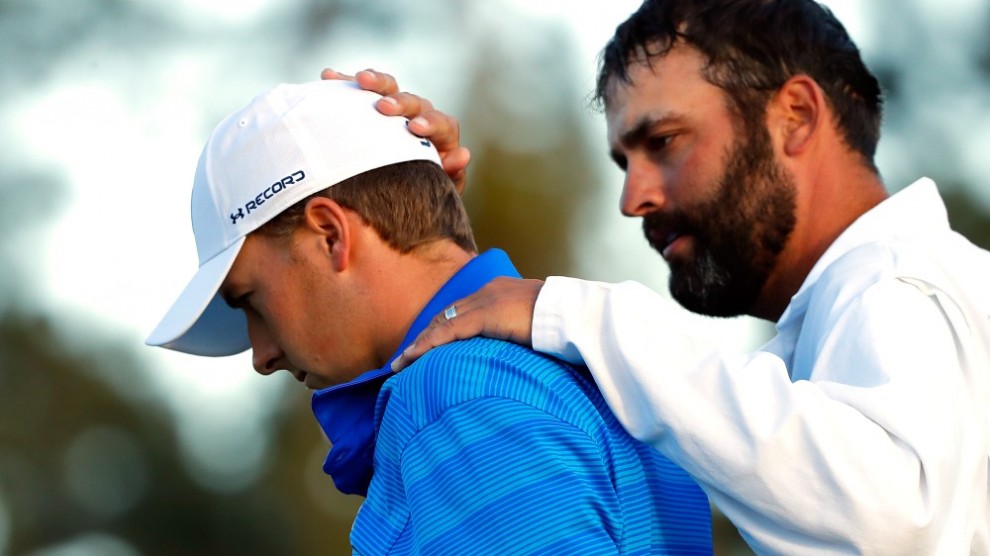We didn't want to watch it, but we couldn't look away.
As Jordan Spieth's tee shot on the 12th hole on Sunday at Augusta National landed on the closely mowed bank, we knew what would happen. For a split second, we thought of Fred Couples' fortunate break 24 years ago and hoped those blades of grass might oblige again. Then we quickly thought better. That ball was wet.
While Spieth was assessing where he would drop, we thought he could just get up-and-down, save bogey and keep moving forward toward a second consecutive green jacket. This was the plan. This was what we wanted.
Then he dropped. Then he turned over sod. Then the ball made a meek splash in Rae's Creek, and our hearts picked up a beat or ten. It's a wonder his didn't leap out his chest and follow that second ball to the bottom of the creek bed.
The rest happened so quickly, and, in the end, it was an up-and-down for a quadruple-bogey 7. They had put a 7 on the board just three holes ago. What the hell happened?
Alright, alright. We composed ourselves. Two par 5s to go. Danny Willett, the new leader and new target, had just birdied 14. The 16th was playing like that last hole of mini-golf where everyone makes a hole-in-one. We thought he had this, and, for a little while, it looked like he did. He got the par 5s, gaining ground on the Englishman.
Two birdies in three holes to force a playoff? We thought he had it. He showed us he did when his tee shot to the 16th ended up 8 feet past the hole. If this guy was the new Tiger, that putt was as good as in the hole. Which hole would he birdie to force the playoff? Hell, maybe he'd birdie both and win the thing outright.
You can perform the Heimlich manuever on yourself, right?
Then he missed the putt we all thought he'd make. And that was it. Spieth pressed on and pressed on 17, finding the greenside bunker. We knew it was over. He did, too.
We love a good hero story because we so rarely get to play the lead in one. We love a good failure story because we've authored too many of them.
Somewhere inside, we love the tragedies more. We have empathy for when people fail, things don't go according to plan and when things slip from someone else's grasp. It's happened to all of us. Loves found and lost -- sometimes our fault, sometimes blindsiding us. Opportunities squandered, typically without even fully understanding what had been left on the table. Vices that cut to the core of our vulnerabilities but often so dark that few, maybe not even ourselves, see it until it's too late. We get what Spieth is going through, and we knew all the steps.
There's the realization. Then there's the quick panic. Then there's the compensatory optimism. That two-step repeats time and again until it dawns on us: It's finished. There's nothing left. And, as it did for Spieth on the 18th fairway on Sunday, then it hits us like a wrecking ball.
"My God," the Talking Heads sing, "what have I done?"
Spieth will get another opportunity. He's young, smart, confident and talented -- the first shields the last three. But for so many of us, we know our Masters Sundays don't come annually, and, with age, they come along with increasing rarity. And that's why we root for the good story, the inspirational one, searching for something that can convince us that we'll get our day in the sun, too. That we can find an example to tell our children, See, it can be done.
Then, when it blows up spectacularly in our faces, the reaction isn't, I told you so. It's a strained, Welcome to the club.

